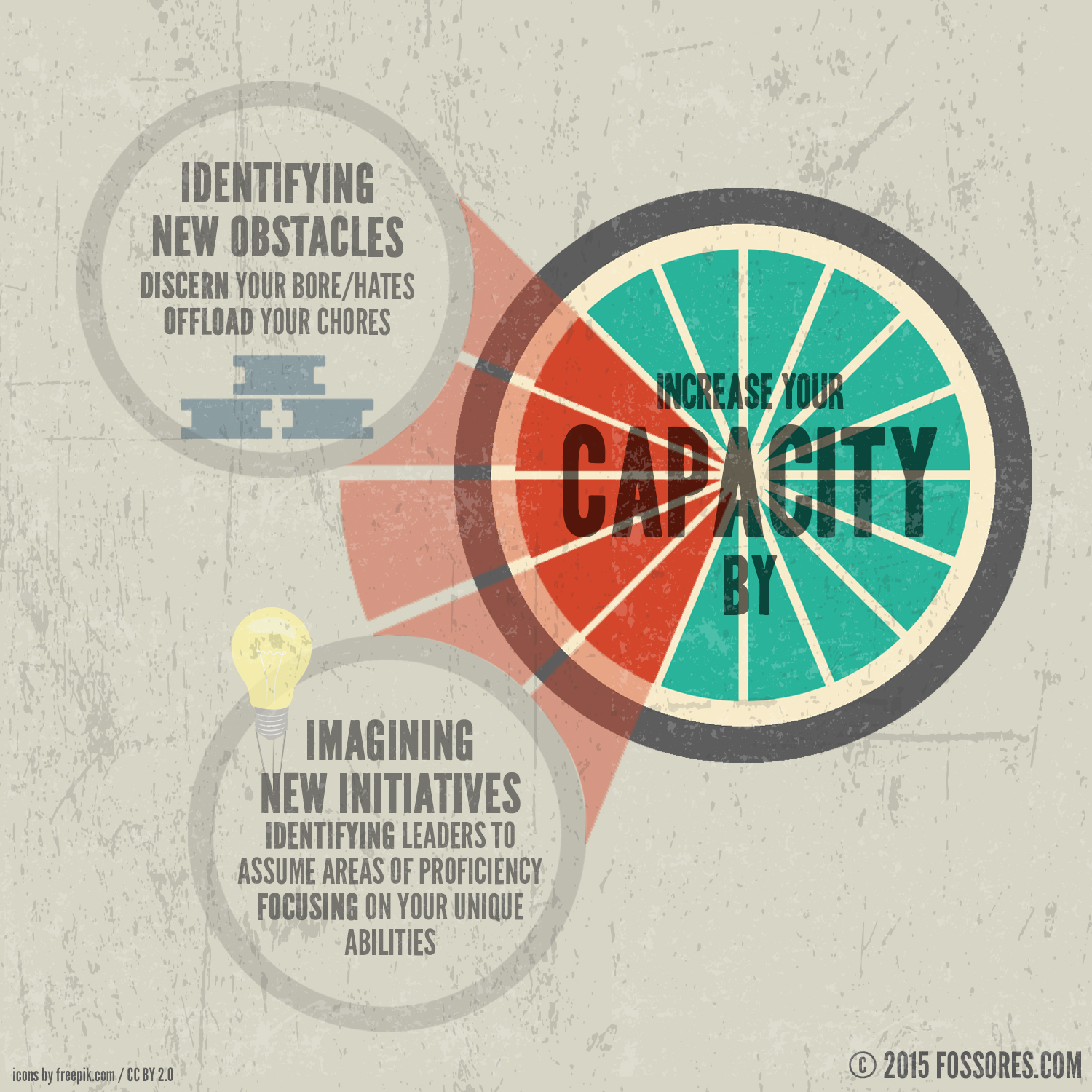Realizing you’ve hit the ceiling on your ministerial effectiveness can be pretty depressing. We all have dreams of reaching thousands and thousands of people for Jesus. We all want to see God’s Kingdom take root on earth-as-it-is-in-heaven. We all hope to be useful and valuable to our cities, churches, and cultures. But we all have a limit to our effectiveness.
Until we grow.
You can increase your capacity by learning to identify new obstacles and imagineering new initiatives.
In order to identify new obstacles, you must first identify all the things that make you bored in your job. Maybe it’s paperwork. Maybe it’s hospital visitation. Maybe it’s officiating weddings or preaching sermons or leading meetings. The specifics vary from person to person, but there’s always going to be something that sucks the life out of you.
The good news about ministry is that God has surrounded us with people looking for opportunity. They want to serve God in their church. They want to help. In fact, our job is to equip them to do ministry. We aren’t ministers of the gospel so much as equippers of ministers. The things that bore us (or the things we just hate) are God’s clues about which activities we’re meant to offload to our people.
Your first obstacles to remove include your bores and your hates. Once you remove them, you will be able to more clearly identify other obstacles to your future success in ministry.
The other half of the equation is imagining (and engineering) new initiatives. This will require extra time and brain space for dreaming and creativity. The only way you’re going to get that time is—you guessed it—by offloading more of your current responsibilities.
Ideally, you ought to offload all of your current responsibilities except those for which you are uniquely gifted.
Allow me to explain.
- We all have things we do poorly, and usually these are our bores and our hates.
- We all also have things we do well—these are the skills we’ve acquired and in which we demonstrate proficiency, but not excellence.
- We have things at which we excel—these are the things everyone notices and compliments.
- We have things for which we are uniquely gifted—these are the things we do best.
Bad. Good. Great. Best.
From the outside, there’s no difference between the things at which we excel (great) and the things for which we are uniquely gifted (best). To the people at our church, it seems as though I preach and write equally well. But the difference is that the things at which we only excel make us tired, while the things for which we’re uniquely gifted invigorate us.
Did you catch that? The things you love to do—the things that keep you up at night dreaming and planning and laughing and creating—those are the things you do better than anyone else in your world. So do those more, and do everything else less. In fact, try to get to a point where you spend 80% of your time in the areas of your “greatness” and “unique ability.” Within that 80%, try to spend at least 50% doing what you’re uniquely gifted to do.
An increase in capacity requires we rely on the people God has placed around us. In order for us to become bigger leaders, we’ve got to cultivate the leaders around us, developing them into more significant contributors to our church.
That’s how you dream up new initiatives. That’s how you engineer new rockets to launch.
That’s how you increase your capacity as a leader.
fossores
Related posts
Categories
Category Cloud
Tag Cloud
Recent Posts
- Victors and Victims November 6, 2018
- 3 Hacks for Happiness October 29, 2018
- Hope Against Death September 20, 2018
- The Shape Of The Cross September 19, 2018


